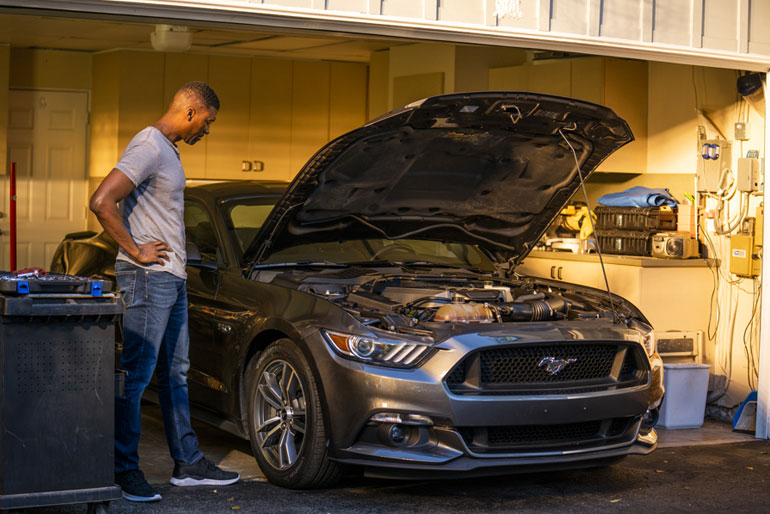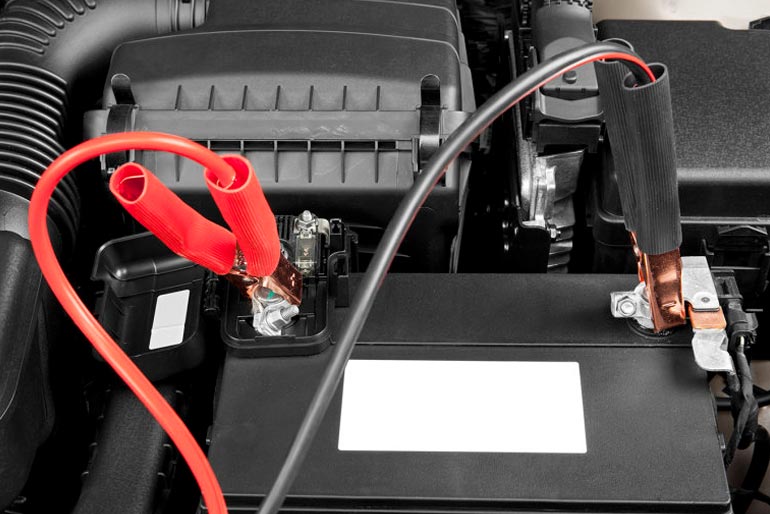A car’s battery is its most essential part; not only does it start up your vehicle, in most vehicles, it is also responsible for the lighting and ignition as well.
Its primary use is to start the engine. Still, it is also used to give power to the auxiliary components of the vehicle, such as the headlights, the interior lights, radio, and such.
If a car battery dies during your travels, the only way to bring it back to life is to jump-start it yourself.
Jump starting a car can be dangerous, and if not appropriately attempted, can lead to severe consequences. Such as electrocution or acid burning.
The voltage stored in the battery is exposed in this process, and a wrong move can lead to you being electrocuted, and the cell also contains acid which can cause third-degree burns
Down below the procedure to jump-start, a car is adequately defined.
Reasons For A Dead Battery
- Cold weather
- Leaving the lights on overnight
- Old age
Now whatever the reason is for the battery to die out, this guide will show you the correct way to confront this problem and get you on your way.
There are a couple of different ways to bring life to a dead battery, like the “bump method,” which involves pushing the car down a hill to generate enough momentum to start up the car, but the most popular method by far is the jumper cable one.
Equipment Needed & Precautions to take
- Jumper cables
- A Doner Battery
- Voltage must be the same
- Make sure there are no leaks or even splits in the batteries
Types of Jumper Cable Methods
- With another vehicle
- With a portable Jumper
There are two ways to use jumper cables, one which involves using another vehicle, and the second consists in using a portable jumper. Both methods generate the same outcome and only depends on the resources you have at hand.
Precautions To take
Before hooking up the jumper cables, you need to make sure both vehicles are turned off and to take your keys out of the ignition. Keep anything flammable away from the cars because, during this process, sparks may fly.
These batteries contain a high level of voltage. Although jumper cables are designed to prevent any mishaps, it still does not reduce the risk of an accident.
Jumper cables using another vehicle
1. Expose the batteries
Set the cars to face to face with each other and pop the hoods and make sure no parts of the cars are touching.
2. Connecting the Jumper Cables
- Separate the cables (Black and Red)
- Connect the first red clamp to the +ve terminal of the dead battery
- Connect the other red clamp to the +ve terminal of the donor battery
- Connect the black clamp to the -ve terminal of the donor battery
- Connect the last black clamp to any metal surface of the car with the dead battery, but make sure the surface is unpainted. ( be sure not to connect this clamp to further down towards the engine)
3. Start the cars
Start the engine of the car which contains the donor battery, this will start flowing power to the dead battery,
in some cases, you can start the car with the dead battery immediately, but it is better to wait a couple of minutes first.
Turn the key and hold for only a few seconds and not longer, this may take a couple of tries, but the engine should come back to life.
NOTE: If the car with the dead battery does not start up and the jump was unsuccessful, then the problem may be more then just a dead battery.
4. Disconnecting the jumper cables
The order of this should be done in the reverse order they were connected in
- Remove the black clamp from the metal surface
- Remove the black clamp from the -ve terminal
- Remove the red clamp from the +ve terminal of the donor battery
- Remove the red clamp from the terminal of the dead battery
Jumper cables using a portable jumper
A portable jumper is a small compact battery that you can travel with and can use to charge up a dead battery in case of an emergency.
1. Prepare
- Turn off the vehicle and remove the keys from the ignition.
- Make sure the jumper is off.
- Make sure both the voltages on the batteries are equal.
- Keep the jumper away from the car.
- Identify both positive terminal and negative terminals on the jumper and the car battery.
2. Connecting the jumpers
- Connect the red clamp with the positive terminal of the battery.
- Connect the black clamp with an unpainted metal surface.
3. Starting the engine
Now you can power up the portable jumper, and after a couple of minutes, you can try to start the ignition of the car.
Turn the key for a couple of seconds and not longer; this may take a couple of tries.
4. Disconnecting the portable jumper
After successfully jumping the car, turn the portable jumper off, then remove the black clamp then followed by the red clamp.
Conclusion:
Safety is paramount in this process, the slightest mistake can cost you your life, so remember to wear protective clothing and to be in a safe environment as well.
After successfully jump-starting your car, it is always recommended to see a professional as soon as possible to ensure further mishaps do not occur.







